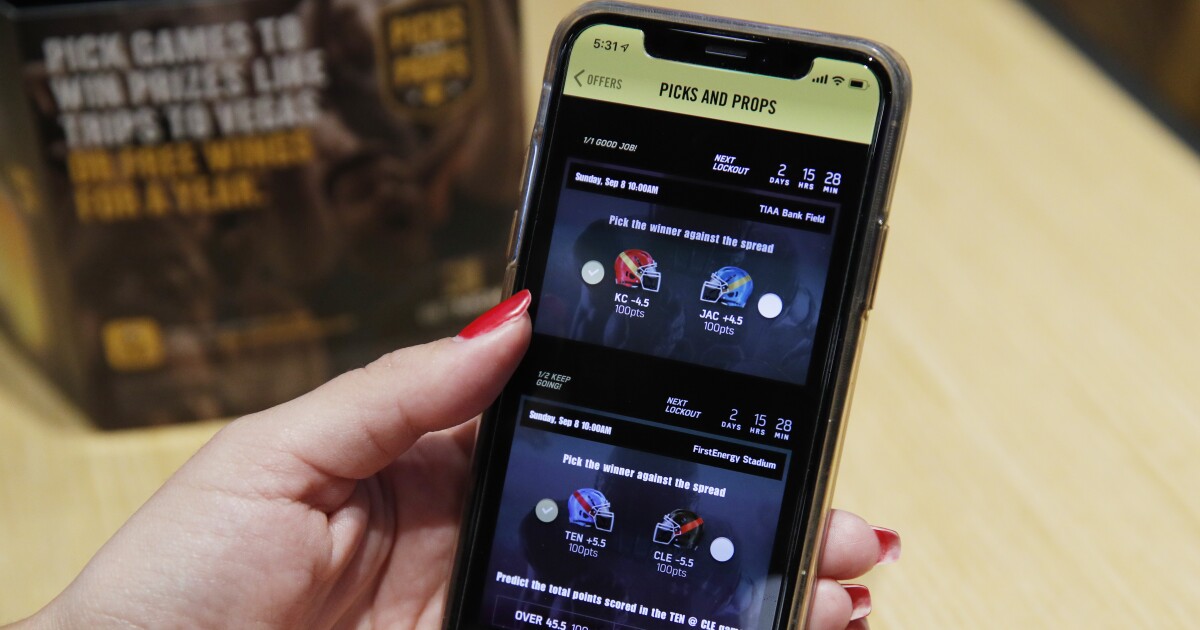
With increasing opportunities for legal gambling, the state’s public health agency is tackling the fallout: problem betting and gambling addictions.
The state’s public health department is setting aside more than $3 million over the coming year to specifically prevent and treat problems with gambling among youth.
“Reaching young people before they start down a path to gambling is critically important,” said Victor Ortiz, who directs the state’s Office of Problem Gambling Services. His office was formed in 2016, soon after the state’s first casino opened.
More than 40% of high schoolers and middle schoolers had gambled in the last year — from scratch tickets to sports — according to a 2021 survey of Massachusetts youth conducted by state education and health departments.
About 1 in 10 Massachusetts adults are problem or at-risk gamblers.
Benjamin Hires, who runs the Boston Chinatown Neighborhood Center, said his nonprofit will work with youth in Malden, Everett, Quincy and Boston to address gambling problems in families. Their focus is not just on minors gambling but also how problem gambling in those kids’ families is affecting them.
“Maybe it’s one of the parents, maybe it’s a grandparent has an issue with gambling. And it’s affecting whether there’s enough resources to put food on the table, whether there’s housing insecurity, whether there’s domestic violence,” said Hires. “It isn’t necessarily the child or the young person who has the issue with gambling, but their family is deeply impacted by that.”
Hires also stressed the need for greater economic sustainability in these communities that could decrease the attraction to gambling.
Leaders of community organizations told GBH News that problem gambling hits hardest in low-income communities of color. A
2021 report found that casinos’ targeted marketing efforts of Asian immigrants in Massachusetts exacerbate problem gambling.
Jessica Collins, who runs the Public Health Institute of Western Massachusetts in Springfield, began working with state public health officials after the MGM Springfield casino opened in 2018, sparking concerns about gambling’s impact on community members’ mental health.
Collins said the advent of even more gambling — from legalized mobile sports betting to fantasy sports — is hard to escape.
“What we’ve heard from the youth is that it’s just constantly in their face. Every time they look at a screen or pull up their phone, there’s an opportunity to push a button and bet on something,” she said. “The youth are very aware of this and are overwhelmed by it. And yet it’s becoming normal and acceptable in everyday life.”
The prevalence of gambling is a main reason the state is trying to beef up its response to the fallout. The Office of Problem Gambling Services will spend $2.1 million on a peer-to-peer youth leadership program for ages 12 to 21. Another $1 million will go to recruiting and training employees to work in outpatient substance use and gambling treatment programs.
Rachel Volberg, who has researched gambling for decades at the School of Public Health and Health Sciences at the University of Massachusetts-Amherst, said state and local authorities need to do a better job enforcing laws that ban minors from gambling — either on sports or on the Massachusetts Lottery.
“From a prevention perspective, you want to see good enforcement of the existing laws,” she said. “We do know from a long line of research studies that the younger one is when one begins to gamble, the more likely that person is to develop a gambling problem. People starting to gamble at the age of 12 or 13 is definitely a concern.”
Volberg was skeptical of gambling treatment, saying the state should also invest in evidence-based research of such programs.
“Jurisdictions come up with stuff all the time that they they think will work or they have found works with alcohol or drugs,” she said. “But there’s really very little evidence on which to base these programs.”